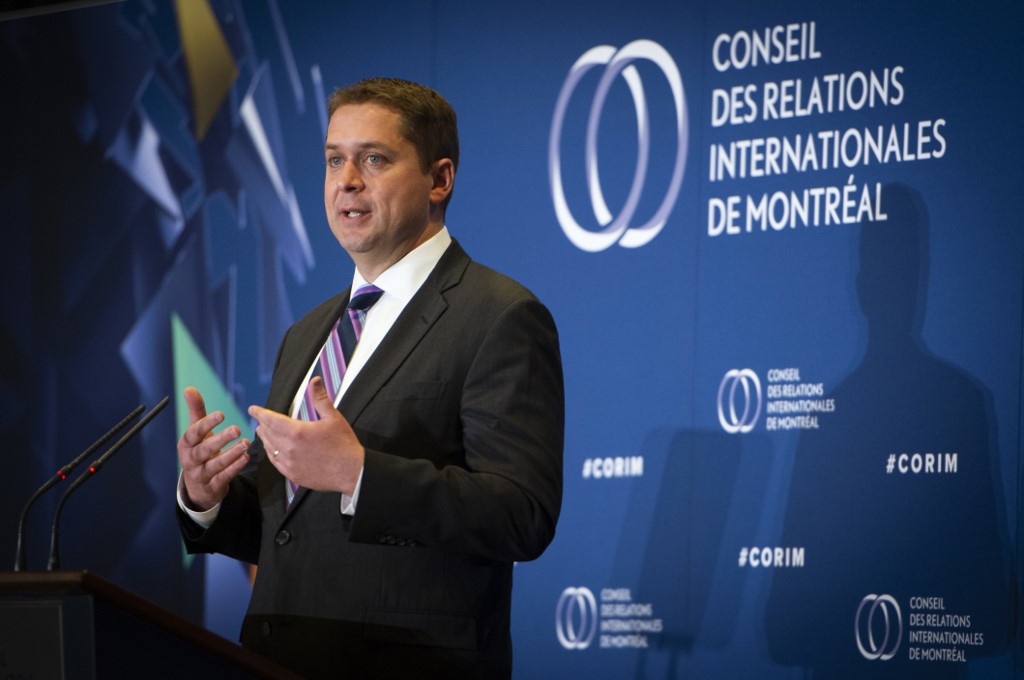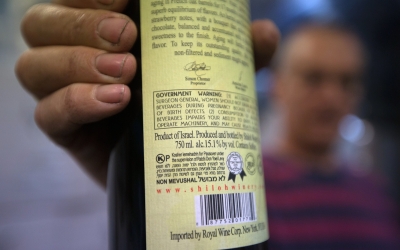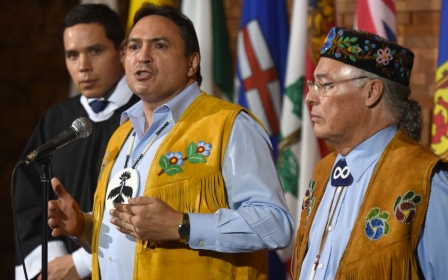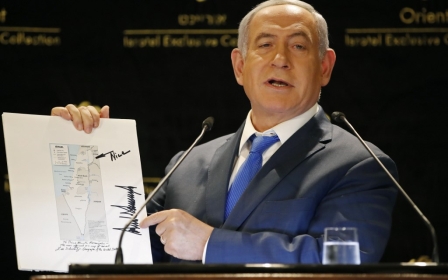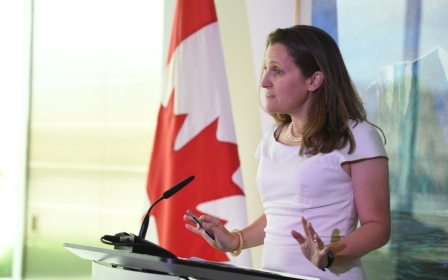Why Palestine looms large in Canada's election campaign
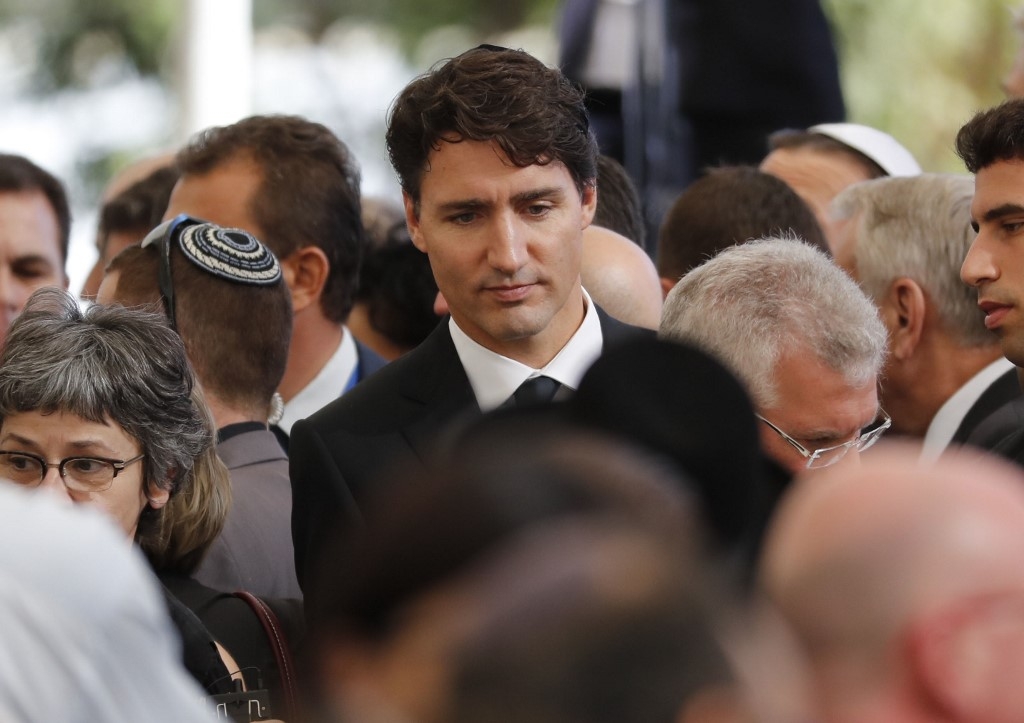
It may seem odd that a small and poor country that Canada does not even recognise, located half a world away, would matter in the 2019 Canadian election.
Yet Palestine does matter - a lot. It featured in the first leader’s debate, on the second day of the election campaign, as Conservative leader Andrew Scheer promised if elected to follow in the footsteps of US President Donald Trump by cutting aid to the UN agency for Palestinian refugees (UNRWA), arguing that it was a factor in fomenting antisemitism across the Middle East.
This is no small matter for the most disadvantaged Palestinians, who after 70 years, are still refugees dependant on contributions by UN members, such as Canada, to fund the budget of UNRWA to cover their basic needs. Last year, Canada was the 13th-largest donor, with nearly $27m in pledges.
Historical ties
Canada has spent $110m on UNRWA since Prime Minister Justin Trudeau’s Liberal government in 2016 restored funding to the agency, which had been cut under the administration of former Conservative premier Stephen Harper.
Canada has historical ties to Palestine, having played an active role in the 1948 partition and the establishment of Israel. It has long been a leading donor to Palestinians, and sits on the Ad Hoc Liaison Committee that coordinates the delivery of foreign aid. Yet, the 2019 election outcome could mean as much for Canadian advocates of universal human rights, as for Palestinians in the Middle East.
Palestinian human rights advocacy and criticism of Israel have divided Canadians at many sites, from post-secondary education, to unions, to places of worship
Palestinian human rights advocacy and criticism of Israel have divided Canadians in many spheres, from post-secondary education, to unions, to places of worship, to provincial and city governments.
Human rights groups and civil society organisations have been central to the debate, particularly as the Harper government cracked down on civil society groups promoting Palestinian rights. Trudeau, meanwhile, has denounced the boycott, divestment and sanctions (BDS) movement as out of step with “Canadian values”.
Canada has pledged to further target Palestinian advocacy work by adopting the International Holocaust Remembrance Alliance (IHRA) definition of antisemitism, which deliberately conflates criticism of the state of Israel with antisemitism.
Partisan messaging
Few issues are as contested in Canadian society as Palestinian human rights. Trudeau’s Liberal government has adopted slightly more positive messaging on Palestine than the previous Conservative administration’s decidedly partisan, and even Islamophobic, tone.
Yet, Trudeau’s policies are relatively unchanged from Harper’s, including Canada using its newfound clout in international affairs to carry out behind-the-scenes work against Palestinians and public advocacy for Israel, arguing that its treatment by the UN General Assembly is unfair.
At the same time, the Liberal government has sought to expand Canada’s free trade deal with Israel - ignoring suggestions to ensure that products made in West Bank settlements should be labelled as such, rather than “made in Israel”. Ottowa has also condemned Canadian law professor Michael Lynk, the UN special rapporteur on the Palestinian territories.
Liberal MP Anthony Housefather has touted Trudeau’s government as the most pro-Israel in Canadian history.
And yet the situation could get much worse for human rights advocates in Canada. The Conservative Party, which has been running even with the Liberals in the polls, has clear Islamophobic and anti-Palestinian tendencies. Beyond Scheer’s pledge to cut funding for UNRWA, the party’s campaign website features a pledge to move the Canadian embassy to Jerusalem.
Such pledges should be taken seriously, considering that Canada was the first country after Israel to suspend aid to the Palestinian Authority after the Hamas electoral victory in 2006. It was one of the first foreign policy actions carried out by the Harper government, whose Conservative Party was founded just a few years earlier in a merger between two right-wing parties.
In a video Harper made for Prager University after leaving office, he made the case that Israel is a beacon of democracy, “where open elections, free speech and religious tolerance are the everyday norm”. If the Conservatives return to power, it is reasonable to anticipate a further crackdown on progressive voices and Palestinian advocacy.
Far-right connections
The Conservatives also have a worrying number of connections with far-right personalities holding anti-immigrant and white nationalist views. The runner-up to Scheer in the Tory leadership race in 2017, edged out by less than two percentage points, was Maxime Bernier, who subsequently established the far-right People’s Party of Canada. Bernier recently made headlines for deriding climate activist Greta Thunberg because of her autism.
Canada’s Green Party leader, Elizabeth May, recently said of Scheer’s foreign policy proposals: “If anyone wants to know where you stand, just figure out what Trump wants.”
Meanwhile, the New Democratic Party (NDP), which holds third-party status in the Canadian parliament, is in disarray, having failed to offer a clear alternative to the Liberals or a defined progressive vision.
While a progressive base within the party wants to advocate for Palestinian rights, prominent MPs have fought against this. At the party’s 2018 convention, the NDP leadership worked hard to prevent the adoption of a resolution banning settlement products and “opposing parliamentary efforts to undermine nonviolent movements seeking a just resolution”.
Five years ago, the NDP rejected the candidacy of Paul Manly, whose father participated in a solidarity boat to Gaza - but it backfired spectacularly when Manly joined the Green Party and won a seat in parliament.
The Greens - who themselves have a fraught history on the issue of Palestine, and only two seats in parliament - are now running close to the once-ascendant NDP.
Odd as it may seem, “little” Palestine looms large in the 2019 Canadian election, one that seems unlikely to bear good news for human rights advocates in the country.
Yet, as bad as the Liberals might seem, without a clear alternative vision from the NDP and with a Green Party traditionally seen as “fringe”, fear of a Conservative victory will likely cement a Liberal win - and Palestine will remain a big part of party politics in the years ahead.
The views expressed in this article belong to the author and do not necessarily reflect the editorial policy of Middle East Eye.
Middle East Eye propose une couverture et une analyse indépendantes et incomparables du Moyen-Orient, de l’Afrique du Nord et d’autres régions du monde. Pour en savoir plus sur la reprise de ce contenu et les frais qui s’appliquent, veuillez remplir ce formulaire [en anglais]. Pour en savoir plus sur MEE, cliquez ici [en anglais].



